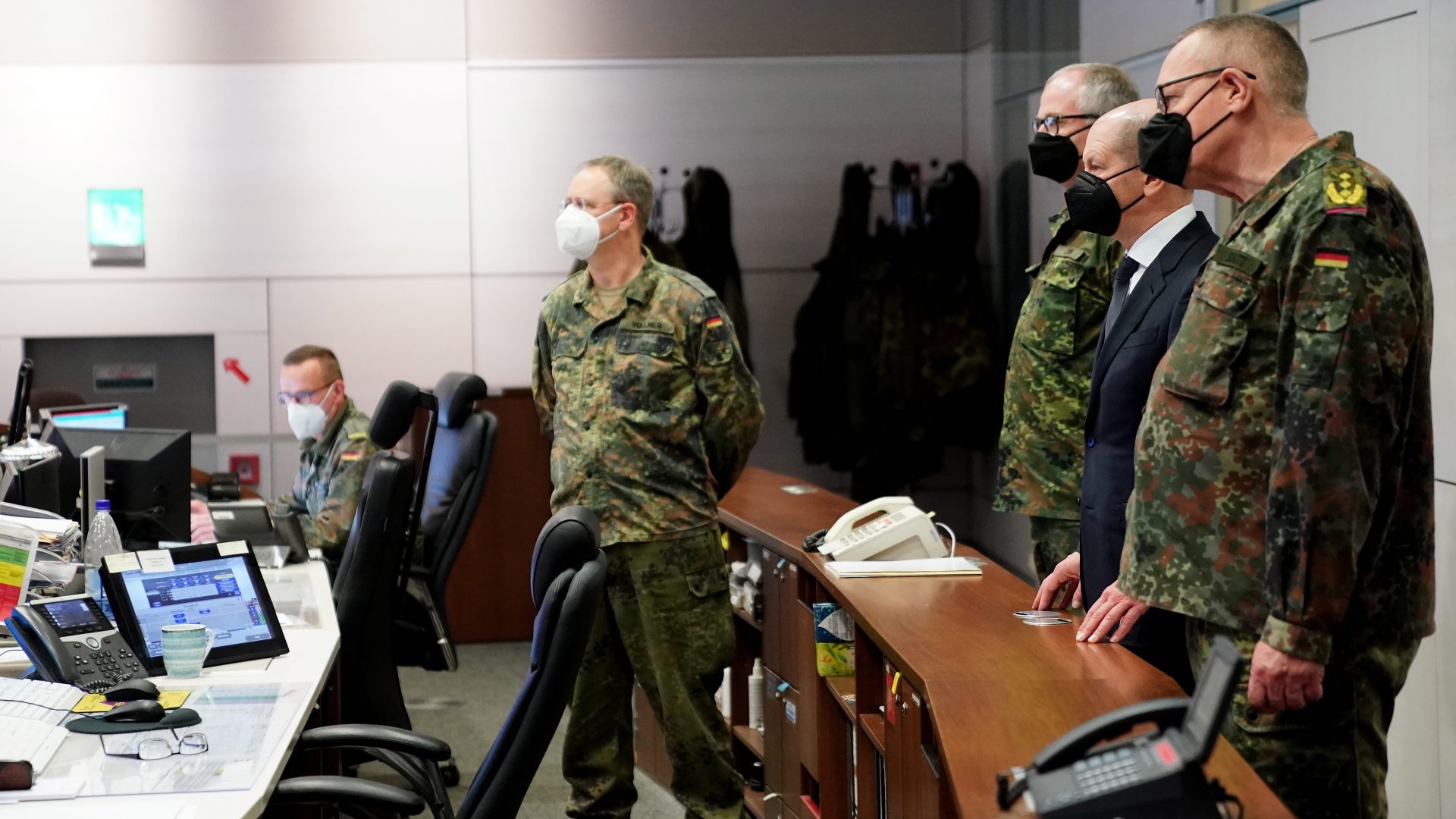Russia’s invasion of Ukraine, Gurjit Singh has written, has “pushed a major reset button in Europe”. The EU’s swift imposition of meaningful sanctions, the revival of serious discussion of deeper military cooperation and, perhaps most strikingly, Germany’s dramatic about-turn on decades of defence reticence, seem to have cajoled an old continent to a moment of reckoning.
And Singh’s analysis of this rapid turn of events for his readers in India is not just that of an armchair commentator, but, as his country’s relatively recent ambassador to Germany, that of a player – an insider with an outsider’s eye.
What we are witnessing, he tells me via Zoom from his home in India (and after commiserating on the England cricket team’s travails in the ongoing Women’s World Cup), is “the defining moment” for Europe.
“I think that the reset is on four counts,” the 64-year-old diplomat says.
“The first one is the transatlantic reset, which has been in the making since the Trump administration. But I think Europe lacked the gumption to strike out on its own. The second one is a reset on how the European Union will be with itself, and people who have really thought – in eastern Europe, in southern Europe, the Nordics – on how you will come together more resolutely.
“The third reset will be, now, with Russia using aggression in Ukraine, how to deal with Russia, with which Europe was quite content to play footsie and hope that economic engagement would integrate them into the European project. And the fourth reset, which I think is not spoken about so much but to India is the most important, is the reset with China.”
His own country, says Singh – who was ambassador to Germany from 2016 to 2017 – has “taken Europe more seriously than ever before” for the last five or six years.
“India has invested heavily into the relationship with Europe, both in terms of the European Union and various countries bilaterally. India has invested heavily into relationships with smaller EU countries in central and southern Europe as well.
“India is deeply interested in Europe for two main reasons. One, as a major trading partner and a source of investment – we want to have a closer economic relationship with Europe, and a political push for the Bilateral Trade and Investment Agreement [talks on which were suspended in 2013] is perhaps going to pay dividends.
“The second one is that India, believing in a multipolar world, believes that Europe, like India, can be an important pole and contribute to what we call reformed multilateralism to maintain international order in the rules of the UN charter and other treaties that we have all signed.”
India’s preference, he says, “would be for Europe to be strong. Now, if Europe was strong – economically, politically, strategically – that would be good for India.”
Brexit, he says, “sounded funny, to be honest – we didn’t understand why Brexit happened. I know countries make miscalculations but… how Europe is integrated or not integrated is not something that India directly views, but many Indian companies had made the UK their home keeping the continental market in mind and that made a difference, so the shift of Indian investment into Europe into the EU countries is now significant, as is the movement of students.”
Singh, who has also been New Delhi’s man in Indonesia, Ethiopia and Djibouti, has watched Germany closely. Was he surprised by Olaf Scholz’s so-called Zeitenwende, his announcement that the country would set up a €100bn (£83bn) fund to modernise the military and ramp up defence spending to meet the Nato goal of 2% of GDP?
“Diplomats are never surprised,” he responds archly. “But the timing was surprising. But I guess this was the tipping point. And nobody expected a new, mild chancellor, who was not Angela Merkel any more, to take this step, particularly when he ran a coalition whose partners were determined not to do this. So yes, I think the timing certainly was surprising.”
What about India’s own attitude to the Russian invasion? The country abstained on the UN vote to deplore the attack, joining the likes of China, Cuba and Iran and prompting headlines like Al Jazeera’s “Why is India standing with Putin’s Russia?” But Singh denies that is the case, pointing to the Indian government’s language, if not its actions, in New York.
“That’s the wrong assessment,” he insists. “The wrong assessment.”
He says: “[On Sunday] the Indian and Japanese prime ministers met and agreed upon Ukraine. They said the same thing. ‘We don’t want borders to be changed by force, we want the UN charter to be maintained, international rules of order must be maintained, you cannot go and invade another country’. They said the same thing. Except we vote differently in the UN.
“Today [Monday] there will be an India-Australia summit. And we will agree on Ukraine. So it is simply that in the UN, countries vote keeping their national interest in mind, and that seems to be what everybody is seeing. But nobody is reading the Indian statements, which say precisely what everybody else is saying. So today, when we have the summit with Japan and with Australia, there’s no divergence of opinion on Ukraine. Sorry to disappoint the media.” One can deplore or almost applaud the brutal realpolitik.
And so a final return to Europe. Were we to be having this conversation in a decade’s time, I wonder, what sort of political Europe might we be discussing?
“At the moment, I don’t know what Europe will look like next year,” he says.
“You know, about a decade ago, when various EU countries had [a] domestic referendum, rejecting the treaty for Europe, did you feel Europe would ever become integrated?” he asks, referring to the votes on the European constitution and Ireland’s on the Treaty of Lisbon.
“So you cannot be predicting this so easily. A decade is a very long time.”










